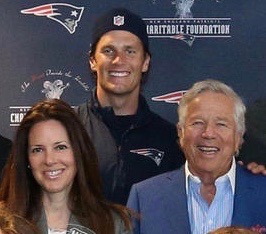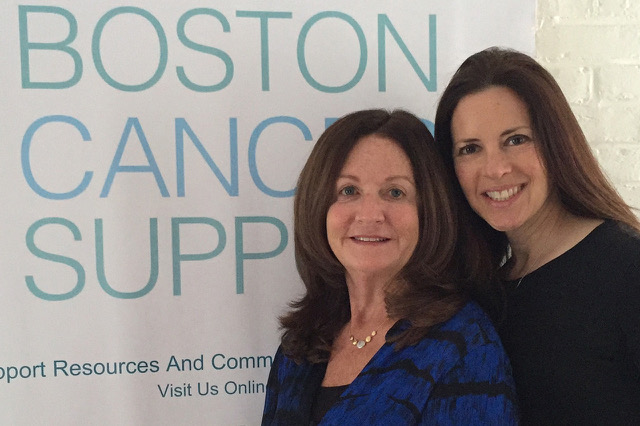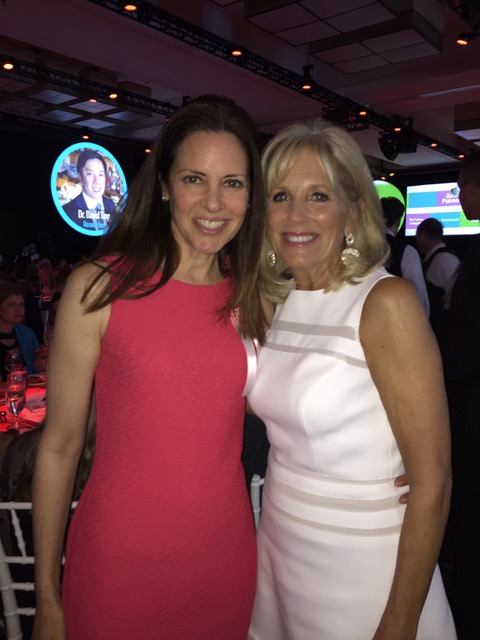BOSTON – Imagine that you’re sitting in your doctor’s office. You’re not sure what exactly what’s happening but you do know something is very wrong. Maybe you’re constantly weak or exhausted, maybe you’re in severe pain, or maybe you’re covered in bruises that you don’t remember getting.
And then, your doctor comes in and he’s got someone in tow – a specialist of some kind. You can tell from their serious demeanor. Introductions are made and, together they, as gently as possible, tell you some of the most frightening words you will ever hear: You have cancer.
“Your whole life is turned upside down,” said Susan Chaityn Lebovits,
There are many in Massachusetts and nationwide who have heard those words and have sought out the resources needed to help support them in this terrifying moment in their new part of their lives. According to the Massachusetts Department of Health and Human services, from 2009 to 2013, 183,900 new cases of cancer were diagnosed cases. This is an average annual age-adjusted incidence rate of 480.4 cases per 100,000 persons. Nationwide, according to numbers from the National Cancer Institute, in 2016, an “estimated 1,685,210 new cases of cancer will be diagnosed in the United States.” Of these, “595,690 people will die from the disease.”
In her life Chaityn Lebovits has had many loved ones affected by cancer. She lost her childhood friend, Marie SZabo Bruno, to leukemia and both of her parents are cancer survivors.
“Many people in my life have been touched by cancer,” said Chaityn Lebovits.
So, when her friend and neighbor Randi Friedman was diagnosed with Multiple Myeloma, she wanted to help. She turned to the Internet to search for resources for her friend and each search took her to a different location.
“There was no centralized portal in the state of Massachusetts,” said Chaityn Lebovits.
The Birth of Boston Cancer Support
From that experience came Boston Cancer Support, a nonprofit dedicated to helping everyone from caregivers, to health care professionals, to patients, find the support and resources they need ranging from clinical trial information to transportation to housing during treatment to support groups and financial aid. The nonprofit maintains a presence both online within communities, constantly assessing the needs of those affected by cancer.
In 2009, Chaityn Lebovits left her position as a correspondent for the Boston Globe to be on staff at Boston University’s Office of Sustainability. It was there where she gained knowledge in both web design and community outreach development.
Since its formation, Boston Cancer Support (BCS) has won numerous grants and awards including the prestigious Mass General Everyday Amazing 100 Award, which honors 100 individuals and organizations worldwide who’ve greatly contributed to the fight against cancer.
In addition, BCS won the American Society for Radiation Oncology (ASTRO) Grant as well as the Myra Kraft New England Patriots Community MVP award.

Susan Chaityn Lebovits, left, New England Patriots owner Robert Kraft and Tom Brady, Patriots QB
Building a Non-Profit
Beth Freeman, a friend of Chaityn Lebovits learned about BCS and wanted to help. Freeman, a successful realtor, graduated from BU with a degree in Physical Therapy yet maintained passionate about health care.
Freeman, herself a Thyroid Cancer survivor, said she had been with another philanthropic organization for ten years, but longed for more responsibility.
“When I saw what Susan did, I said: ‘I’m in,’” Freeman said.
“There’s a lot of paperwork that you have get through in order to gain 501 C3 status,” Chaityn Lebovits said. From there, they worked to assemble a very well-versed board. Next the duo worked to get the word out as well as the search for grant opportunities.

Left, Beth Freeman and Susan Chaityn Lebovits
“I had a lot of friends doing philanthropic work,” Freeman said, “And in the industry, they said: in order to get grants, you need programming.” She said that she was told that no one was going to give you money for resources.
When Chaityn Lebovits and Freeman were awarded the Blue Hills Community Health Alliance Grant (CHNA20) they were able to launch the first of their Cancer Collaborative Workshop Series.
The Cancer Collaborative
The Cancer Collaborative workshops bring together health care professionals and organizations that support patients and their families into the same room so they can unearth the largest needs in their communities and the work together to address those needs. These included social workers, oncology social workers, nurses, and patient navigators.
The Patient Navigator is a professional who acts as a liaison between the patient and the cancer treatment team. The ensure the families know all of their support options, including financial aid, transportation and translation services.
Chaityn Lebovits said that those attending have the opportunity to meet colleagues who may be working in the same communities, but may not know one another. Facilitated by Katie Dobbin Binda, a respected oncology social worker, the Cancer Collaborative workshops consist of three speakers and two breakout sessions, where professionals discuss the needs of their individual community. They are held three times a year throughout the state.
One of needs that came out of South Shore Cancer Collaborative “was the desperate need for transportation,” said Chaityn Lebovits.

Susan Chaityn Lebovits (left) and Jill Biden
End Part One: In part two, Susan Chaityn Lebovits and Beth Freeman talk about forming a partnership with the ride-sharing company, Lyft and the other ways the BCS works to provide support for cancer patients and their families.
Links:
